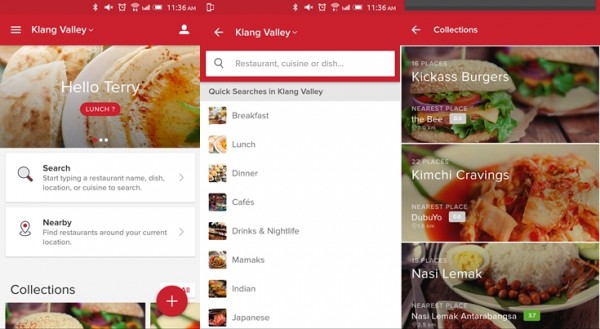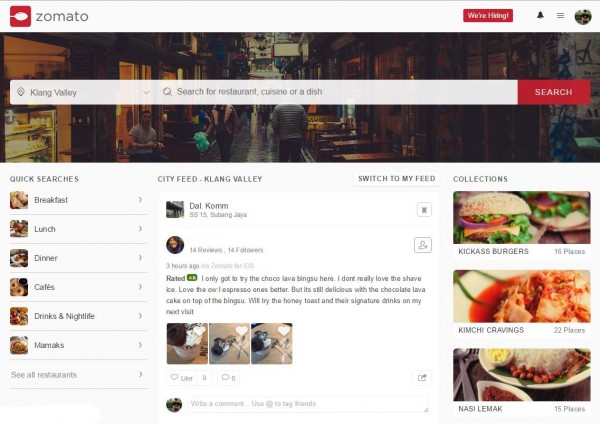
Zomato has now entered Malaysia after it first arrived in the South East Asian market in the Philippines two years ago. The company has now covered over 12,000 listings throughout the country, allowing consumers to easily refer to the listings before heading out for a meal.
Zomato is a restaurant search and discovery app that allows users to browse through information about an eatery before finally deciding where to dine. Other than reading reviews, users can also write their own review for restaurants they have personally been to. In order to maintain the integrity of the reviews, users are given ranks or “levels” based on how active they are on the platform. The more they contribute to the platform (either by adding reviews, commenting or liking content posted by other users), the higher the level they would reach – essentially turning them into respected members within the platform.

Other than that, Zomato has something called ‘Collections’ which is a mood-based collective list of places to eat. For example, I for one have never eaten Banana Leaf Rice so once I tap on the list, it shows me the nearest list of eateries that serves the meal along with other options.
More importantly, Zomato is best known for its repository of menus collected from each and every one of the eateries listed on the platform. Zomato quickly gained its fame because of this, and remains the key feature in each of the 23 countries that it is available in. Currently, Zomato has a database of more than 12,000 eateries, with thousands more to be added by the company’s internal team of data collectors, scouring local streets for new entries.
Deepinder Goyal, founder and CEO of Zomato said:
“We’re excited to launch our operations in Malaysia. Southeast Asia has been amazing for us, and we are one of the largest players in our space in Philippines and Indonesia. We are hoping to replicate our success in the region with our Malaysia launch.”
The company has also expanded its app to include additional services like online ordering and table reservations. For restaurant owners, Zomato offers its very own Whitelabel Platform and a cloud-based Point-Of-Sale system, all of which will be rolled out gradually over the next few quarters.
The service is already up and running in Malaysia in three cities (Kuala Lumpur, Petaling Jaya, and Subang Jaya), and faces strong competition from incumbents such as OpenRice and HungryGoWhere, both of which already commands a strong following in Malaysia with their own database of “makan” places. Food lovers can either visit its website or download the app from the App Store, Android and Windows. From there, users can sign up as Zomato members and start contributing to the platform.
Follow us on Instagram, Facebook, Twitter or Telegram for more updates and breaking news.



